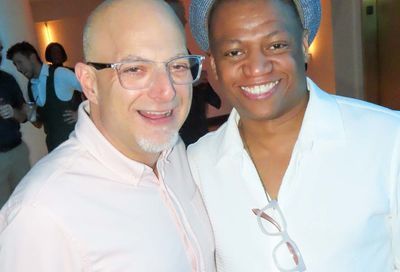Handsomely Revived
Verdi's ''La Traviata'' at Washington National Opera
Aficionados will be intrigued to hear that the Washington National Opera continues this year’s season with a production of Giuseppe Verdi’s classic La Traviata based on the composer’s original score as heard at the 1853 premiere. History buffs will know that the score was changed after the opening night, likely due to a bad night for the leads rather than problems with the opera. The score heard most often since Verdi’s time is the one he re-worked for production the following year.
 |
But scholarly contemplations aside, what makes this dip into the past exciting is that the original score is significantly more vocally demanding. What could be more fun for singers and audience alike than a new twist to a classic?
As occasionally happens, the opera will be shared by two casts. Starting the run is soprano Hei-Kyung Hong in the role of the consumptive Violetta (May 11-23). Hong brings a certain physicality to her role which energizes Violetta away from the fainting-heroine mode and gives her a bit of sexual sparkle. This kind of rendition does much to justify suitor Alfredo’s rather rampant ardor for her despite her debilitating illness. Hong has a sweet, never strident soprano, yet it did seem that a few opening night jitters brought the odd wrinkle to her silky tones. Her command of the original score makes for a powerfully more engaged Violetta.
Tenor John Matz sings Alfredo to Hong’s Violetta (for the same dates) and he certainly ups the sexual tension set by Hong, with plenty of lusty bear-hugs. Matz has a matinee-idol bearing that gives him a dashing persona — especially for a lead — and he does have a clear, noble tenor. But he was nevertheless a tad uneven vocally, striving at times, losing steam at others. Overall, however, he gives a good, solid performance.
But true kudos must go to baritone Jorge Lagunes who sings Alfredo’s father (again through May 23). Germont senior interrupts his son’s passionate, but sinful affair with woman-with-a-past-Violetta, by secretly convincing Violetta to dump Alfredo. Violetta agrees to sacrifice her happiness in order to preserve the Germont family honor and in doing so wins the respect and admiration of papa Germont. Lagunes not only sings Germont with fine, well-crafted tones, he also succeeds in bringing a bit of subtlety to a not so subtle role. His gravitas is such that he almost, if not quite, upstages his son. Had he been dressed in leading-man black instead of supporting-role grey, there could have been the interesting suggestion of a bit of sexual rivalry with his son.
|
Director Marta Domingo does well by encouraging Hong and Lagunes to expand upon the usual cookie-cutter interpretations. It is exhilarating to be drawn in by both the music and the dramatic interpretations. Matz is rather hamstrung by the one-dimensionality of his role, but he keeps pace with the other leads with his energy. This strong character interaction and believability is thanks to Ms. Domingo’s continued commitment to dramatic development, even within the limitations presented by many operas. The intimacy drawn from the characters is nicely complemented by the sets and costumes of Giovanni Agostinucci, who injects a dose of realism into the drawing rooms, gardens and house of ill-repute. Violetta’s sorry state is not lost on Agostinucci, and his rendition of her house emanates with undertones of emptiness.
Finally, though the orchestra did a wonderful job with this original score, conductor Giovanni Reggioli, seemed to ever so slightly drag the pace. I didn’t find that it hurt the evening, but the gentleman next to me went into silent apoplexy at times cured only with quite a bit of frantic “air ” conducting (expressly forbidden by the House rules, by the way). Having said that, this is a great evening of classic opera and a rare chance to hear Verdi’s original score performed live.
Support Metro Weekly’s Journalism
These are challenging times for news organizations. And yet it’s crucial we stay active and provide vital resources and information to both our local readers and the world. So won’t you please take a moment and consider supporting Metro Weekly with a membership? For as little as $5 a month, you can help ensure Metro Weekly magazine and MetroWeekly.com remain free, viable resources as we provide the best, most diverse, culturally-resonant LGBTQ coverage in both the D.C. region and around the world. Memberships come with exclusive perks and discounts, your own personal digital delivery of each week’s magazine (and an archive), access to our Member's Lounge when it launches this fall, and exclusive members-only items like Metro Weekly Membership Mugs and Tote Bags! Check out all our membership levels here and please join us today!




















